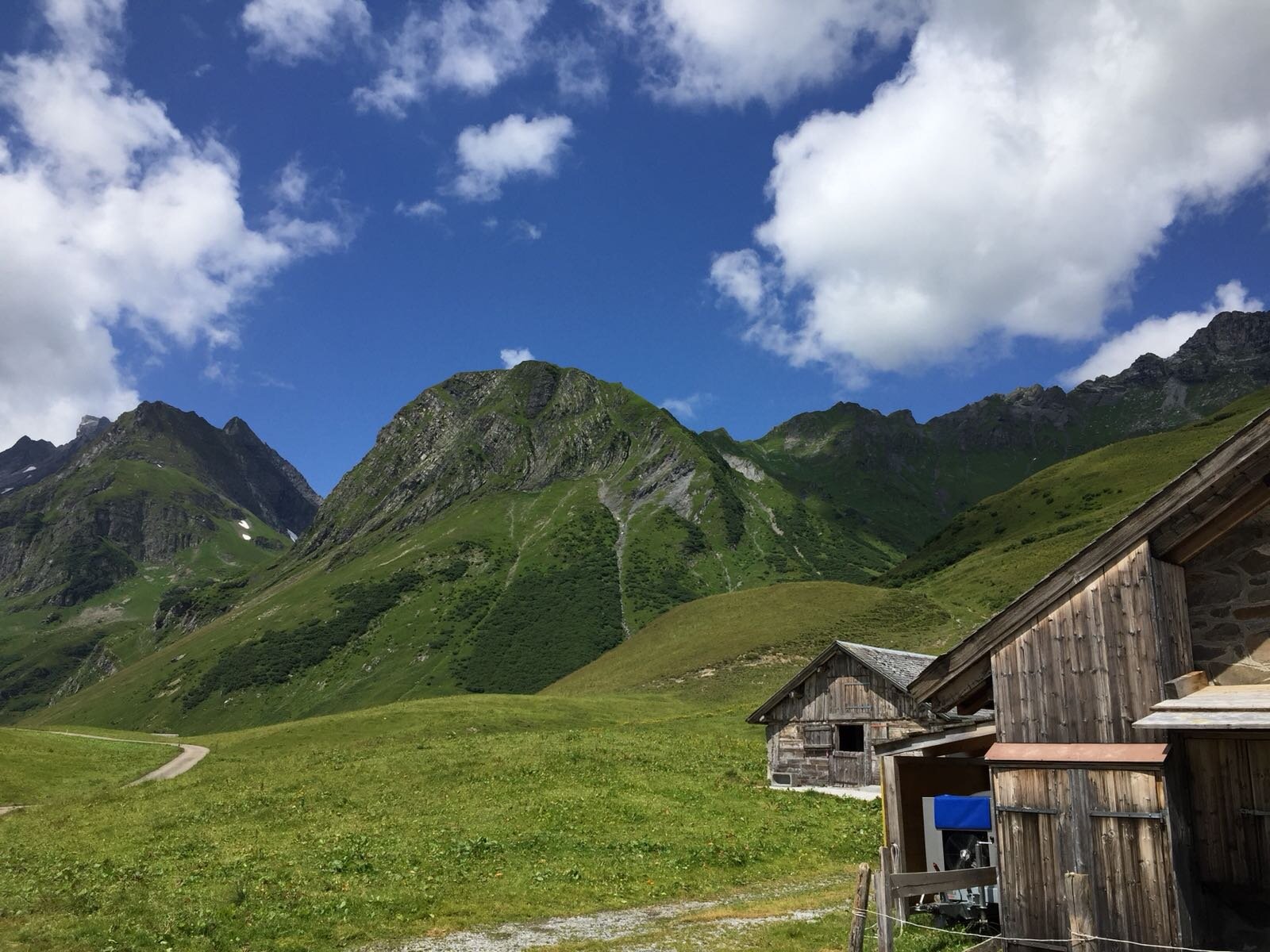
“Natural Alpine Cheese is about understanding a centuries old craft.”
What makes Natural Alpine Cheese unique - A high altitude creation
Natural Alpine Cheese is made possible by a special combination of environment, animals, and people.
Beneath the winter snows of the high Alps lies an underlay rich with life, patiently waiting for its moment in the sun. As snows recede in spring, mountain farmers journey with their animals high into the Alps to take advantage of the brief but intense burst of growth. For a few short months, small herds can be found dotted across the steep slopes, grazing on lush summer meadows alive with an incredible array of plants.
The animals grazing in this environment produce fragrant alpine milk which is used to make cheese right there on the mountainside. Housed in traditional chalets, farmers make cheese using copper vats over open wood fires, following methods from centuries gone by.
Living conditions are tough, days are long, work is done by hand but every farmer we meet loves to be there nonetheless. Each year we visit them to share a moment and taste their production. Our selection brings together cheese that is truly unique to place and time.
Good cheese starts with grass
The unique combination of climate, soil conditions and sun exposure of the Alps have created an extraordinary biodiversity of plants that flourish in the warmer months. What looks like a simple summer meadow is in fact a complex ecosystem that has been nurtured over the centuries by traditional pastoral and agricultural activities. There can be over 100 different varieties of plants above 1400 metres. Animals dine on this plethora of grasses, flowers and other species and it is this diversity of diet that leads to such a special cheese that captures the flavour of its mountain terroir.
A product of contented animals and pure, raw milk
Alpine cheesemakers continue the legacy of their family traditions, following Alpine farming practices and ethical animal husbandry.
Summertime for animals on the Alp is a time of enjoyment and relaxation. Grass-fed, they move across the slopes unhurried, filling their lungs with clean mountain air while eating fresh, nutritious food. Herds are small, and each animal is known to its farmer by name and the ring of its bell.
Farmers use raw milk and often self-produced starter cultures to make their cheese, allowing nature to do its amazing work with as little intervention as possible. The result is authentic alpine cheese, produced by people working in tune with nature.
Selection by Hand
We have developed our own rigorous selection criteria, that ensure our Natural Alpine Cheeses represent the best of the craft.
We only include cheeses that are:
produced by animals grazing above 1400m during the summer months
made with raw milk
using milk which has not been transported
made directly on the Alp
made using traditional methods
where available, made with self-produced starter cultures
of optimum maturity
hand selected
Alpine cheese is often matured on the Alp and sold at the farmhouse door. Only a small percentage leaves the area of its production.
Supporting a centuries old craft
Cheesemaking on the Alp is a difficult, time consuming craft performed by families who often trace back generations. It is a ‘slow food’ process that draws together many crucial aspects of life – the senses, memory, tradition, everyday habits and professional skill.
However, like many rural communities around the world, the Alps face depopulation as people abandon their traditional ways of life. With this migration, their knowledge, skills, culture and values vanish too.
Having developed connections with many mountain farming families, it’s extremely important to us to support, by buying their cheese, an ancestral way of life, recipes and techniques. By bringing you this Alpine cheese we strive to help maintain their traditions, support their culture to flourish and continue the unique biodynamics of high alpine pastures.
The healthiest cheese
Alpine cheese is the best type of cheese for your health.
The quality of milk is the direct result of the quality of what the animal eats. We are what we eat. Researchers have proven that seasonally produced alpine cheeses are not only highest in omega-3 fats such as ALA, they also have relatively low concentrations of arachidonic acid, a fatty acid that can exacerbate inflammation in the body.
Furthermore, Alpine cheeses made from the milk of grass-fed cows have a more favourable fatty acid profile than all other cheese types, with the highest concentrations of a trans fatty acid called conjugated linoleic acid (CLA), which has been linked with reduced cancer risk in a number of studies.
Alpine farming is not intensive. In Switzerland, for example, no herbicides or fungicides are allowed to be used on the Alpine pastures.




